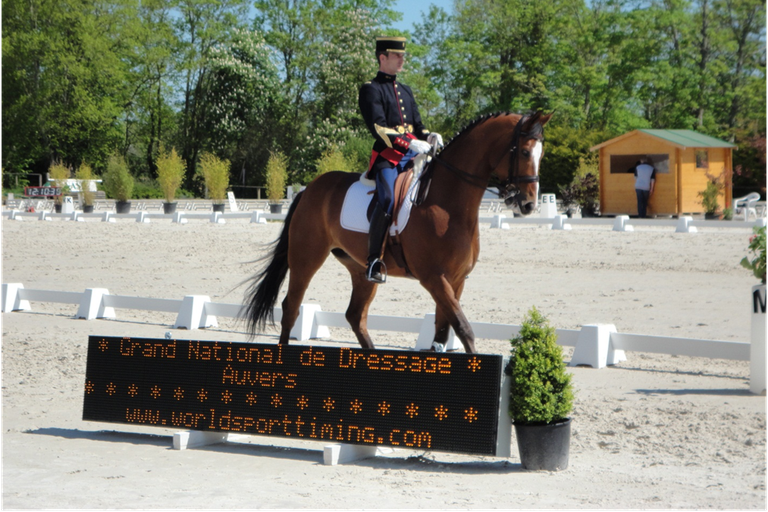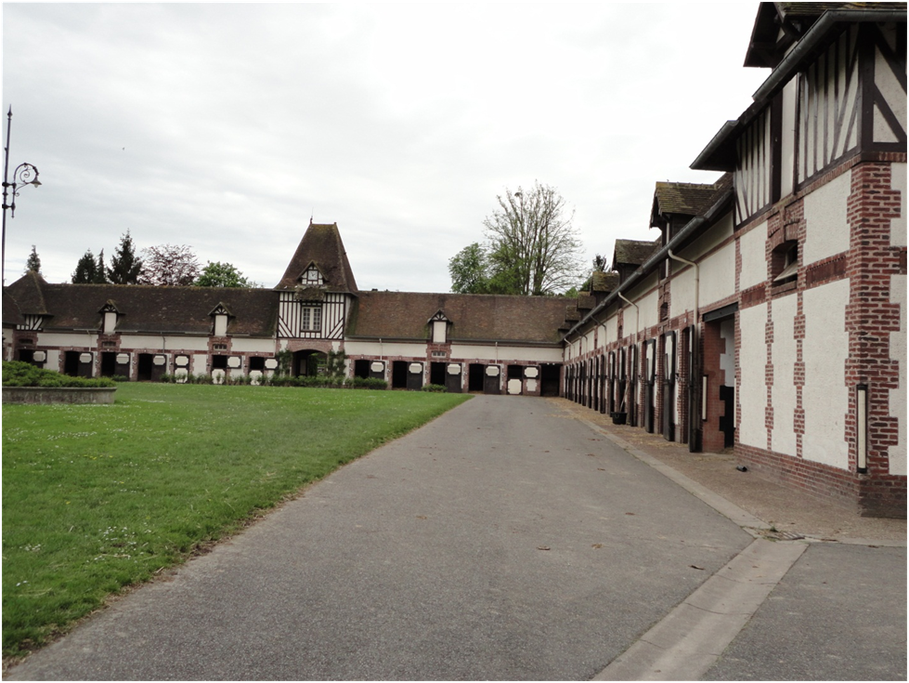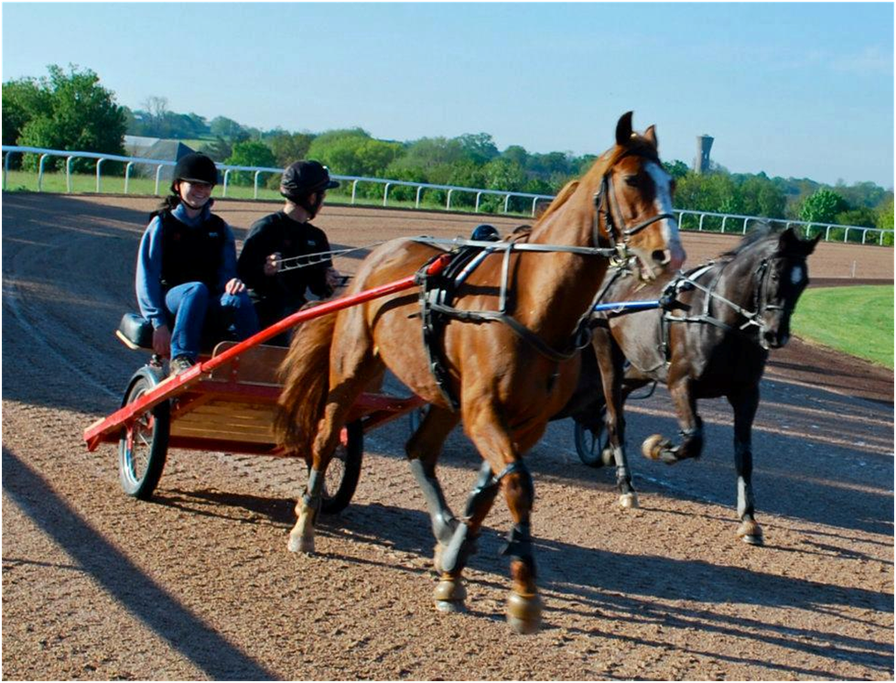Posted: February 19, 2013
When I registered for An Sc 499A, I thought I knew what I was getting myself into. After all, a course titled “Normandy France Equine Industry Studies” seemed pretty self-explanatory. But I never would have guessed that I could learn so much or that I would have so many incredible opportunities in one semester and a 10 day visit to France.

Grand National de Dressage: Auvers, a dressage competition that included levels up to Grand Prix. This competition was hosted on the third largest sand arena in France
When we departed for France, I didn't quite know what to expect. But the trip far exceeded anything that I dreamt up on my own. We were guided by Judith, a representative of the Normandy Equine Council which acts as the governing body of the equestrian industry in Normandy. The places we visited ranged from the cemetery at Omaha Beach and a World War II museum to les Haras nationaux, the National Stud Farms that stand stallions and host exhibitions and competitions.
The breeding operations that we visited were all spectacular and contained some of the best competition horses, breeding stallions, and professionals in the industry. The first was M Stud, home of top show-jumping stallions such as Quick Start, who was ridden by the grand prix show jumping competitor Meredith Michaels Beerbaum. In addition to the full service breeding facility, M Stud also has four trainers who work with horses from 3 years of age up to when they are international competitors. At M Stud we learned about the process of inspection of the Selle Francais horses and when the farm tries to sell their horses to earn the highest profit.
 The National Studs are multifunctional and act as facilities for standing stallions at stud, breeding mares, hosting competitions and exhibitions, and educating the public. At Le Pin National Stud, there are schools for carriage making, leather making and saddlery, insemination, riding, and farrier work. Students learn the ins and outs of the equine industry and how to function as professionals to improve their private operations and to act as business people within the industry.
The National Studs are multifunctional and act as facilities for standing stallions at stud, breeding mares, hosting competitions and exhibitions, and educating the public. At Le Pin National Stud, there are schools for carriage making, leather making and saddlery, insemination, riding, and farrier work. Students learn the ins and outs of the equine industry and how to function as professionals to improve their private operations and to act as business people within the industry.
We also visited many racetracks for both French Trotters and Thoroughbreds. While in Caen, we visited Le Hippodrome de la Prarie, one of the largest racetracks in France that covers a distance of 2000 m. While at Le Hippodrome de la Prarie, we watched qualifying races for 3-4 year old French Trotters. In order to qualify to race, the trotters had to cover 2 km in 1 min and 20 seconds. The French Trotters can be either ridden or steered from a sulky. Caen is also going to be the center of the 2014 World Equestrian Games, and we got to tour around the city and see where each of the competitions is going to be held while learning about some of the logistics and planning that goes into hosting such an enormous equestrian event.
One of our last stops before spending two days in Paris was to visit one of the jockey schools in France, called L'École des Courses Hippiques. There are five of these schools throughout France, and they provide an alternative to high school. The main goal of these schools is to train employees for racing stables as jockeys, managers, or grooms. Students have the option of stopping after learning the basic skills of how to become a stable hand, or they can stay at the school and progress all the way to being a trainer and manager.  The highlight of our trip was that we got to ride in 2-person training sulkies. The horse that pulled the sulky I rode in won over 300,000 Euro on the track prior to being donated to the school. The person driving the sulky was sixteen and had been at the school for 3 years. What a cool experience!
The highlight of our trip was that we got to ride in 2-person training sulkies. The horse that pulled the sulky I rode in won over 300,000 Euro on the track prior to being donated to the school. The person driving the sulky was sixteen and had been at the school for 3 years. What a cool experience!
I could write novels about what I experienced in France and what I learned. I am happy to say that the knowledge I gained is irreplaceable and was well worth the time and financial investment that I put into the trip. Travelling to another country and learning about their culture and how their industry worked gave me a lot of confidence in myself and my ability to buy and sell horses internationally in the future. I am excited to be able to apply what I learned in France to a lifetime of working with horses and hopefully operating a successful breeding and training facility.
Ag Sciences Global
Address
106 Agricultural Administration BuildingUniversity Park, PA 16802
- Email globalag@psu.edu
- Office 814-863-0249
- Fax 814-865-3055
Ag Sciences Global
Address
106 Agricultural Administration BuildingUniversity Park, PA 16802
- Email globalag@psu.edu
- Office 814-863-0249
- Fax 814-865-3055

